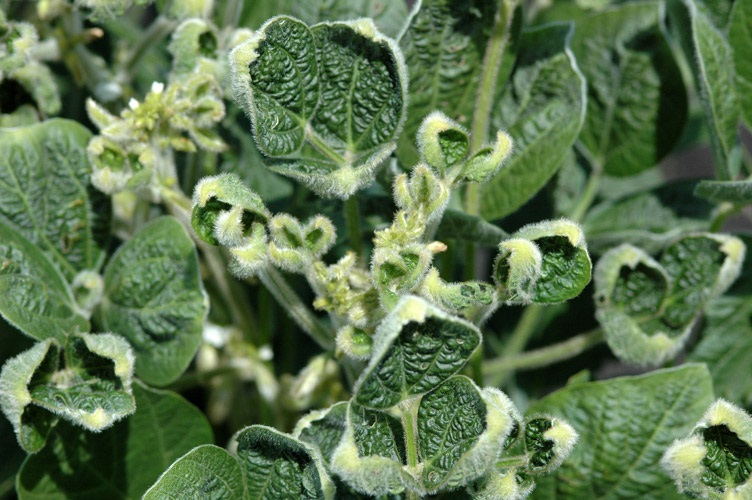News
Yield impact from dicamba injury is hard to predict

Photo courtesy Aaron Hager, University of Illinois
A University of Nebraska weed specialist says he expects the number of acres with off-target dicamba damage in the state to be about the same as last year.
But Amit Jhala says the level of farmer concern about potential crop injury seems to be less than it was in 2017. He attributes that to the fact that most of last year’s injured fields were able to recover and produce excellent yields.
“It was surprising to see how well the soybeans can recover from the off-target injury issues,” Jhala says. “Basically, last year, there were only a few fields that resulted in the yield impact. They (farmers) are more interested in whether it will damage their crop yield and that’s why, probably, they are not too much concerned.”
But University of Illinois weed scientist Aaron Hager says the excellent growing conditions of 2017 may have masked the potential for damage from dicamba exposure. Hager says effect on yield is dependent on several factors, including the dose of the exposure, growth stage of the soybean, and environmental conditions for the remainder of the year.
“So if you want to contrast, let’s say 2017, where we saw the symptoms and maybe we didn’t see that big of an effect on yield, in general–but what would happen if you had the same level of injury in 2012, in the drought year? I think the outcome at the end of the year would be much different,” Hager says. “You can’t look at a soybean field right now, at this time of the growing season, that has symptoms of dicamba exposure and make any prediction whatsoever on yield, that has any possibility of being accurate–you simply can’t do that.”
Jhala says dicamba injury reports this year involve about 25-thousand acres, compared to 50-thousand last year, although reports are still coming in. He estimates there were three million acres of dicamba-resistant soybeans planted in Nebraska this year.
Hager’s latest estimate was that 500,000 acres of non-dicamba tolerant soybeans have been damaged in Illinois so far this year, with the potential to have as many damaged acres this year as there were in 2017.
AUDIO: Amit Jhala
AUDIO: Aaron Hager

Add Comment